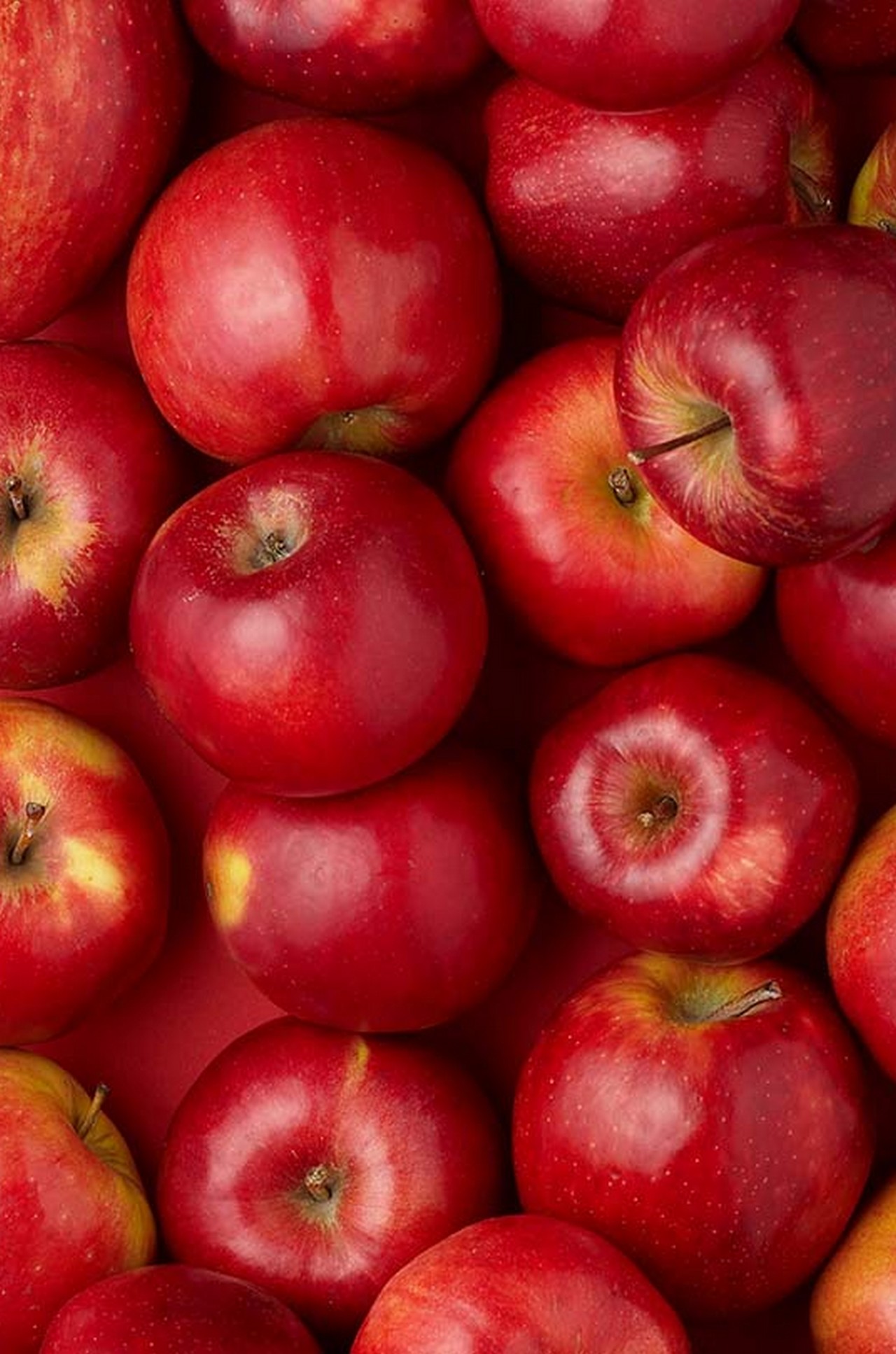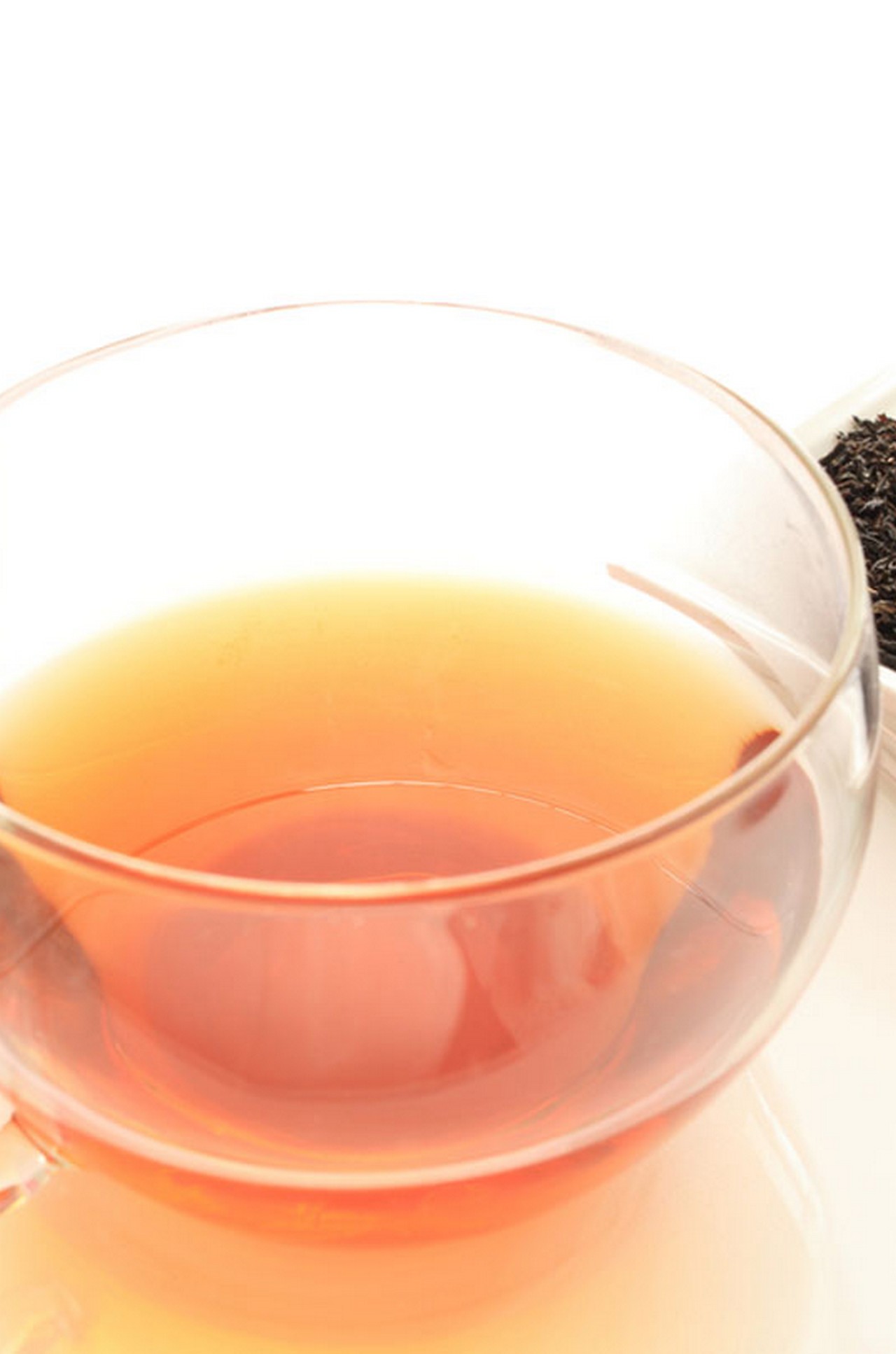
Apples are one of the nutritionally dense fruits available. The benefits of apples are mainly due to the powerful antioxidants, vitamins, minerals, and dietary fibers. Consuming apples may reduce the risk of chronic diseases of the heart, brain, gastrointestinal systemi XIt includes organs of the digestive tract that take in food and liquids and break them down into energy for growth and tissue repair. , bones, and eyes.
This article discusses the benefits of apples, their nutritional profile, recommended dosage, and potential risks. Read on.
In This Article
Why Should You Eat Apples? What Do They Contain?
Apple (Malus domestica) is one of the top three fruits produced around the world. It is easy to store and transport and available almost round the year (1).
Stylecraze Trivia Apple trees are very slow in growth and take around 4 to 10 years to reach full production.
This fruit is rich in carbohydrates, fiber, vitamins, and phytochemicalsi XThey are characterized as bioactive nutritional plant compounds found in fruits, vegetables, and grains. . Its polyphenols have excellent antioxidant capacity (2).
As per research and medical literature, apples are among the foods that show direct and strongest associations with decreased mortality. In fact, the National Research Council recommends at least 5 servings of fruits and veggies a day, and apples are one of them (2).
Apples predominantly contain pectin and quercetin. Pectin is a type of soluble fiber that may help ease digestion. Quercetin is a flavonoid that has antioxidant and anti-inflammatory effects (1).
All these reasons are behind the famous proverb: An apple a day keeps the doctor away.
Move on to the next section to understand how apples benefit your health. You can also find supporting scientific evidence for each of the benefits. Scroll down!
What Are The Health Benefits Of Apples?
These crunchy fruits have potent anti-aging effects. They may prevent age-related memory loss, skin troubles, and hair fall. Eating them in the right amounts may also reduce the risk of cancers.
1. May Protect Your Heart
Shutterstock
A few studies relate high flavonoid intake to a reduced risk of cardiovascular diseases of about 35%, particularly in women. Finnish research shows a similar relation between thrombotic strokei XOccurs due to the formation of blood clots in the arteries carrying blood to the brain. Usually seen in people with high cholesterol. and apple consumption (2).
In older men and nearly 35,000 women, apples and wine (and not juice) prevented coronary heart disease, myocardial infarction (heart attack), and death. According to animal studies, the active ingredients in the peel and fruit have a cholesterol-lowering effect (1), (2).
They protect the heart and blood vessels from free radical damage that triggers most of the cardiovascular diseases. However, a significant chunk of evidence indicates mixed results of apple intake and heart health. Some researchers claim the data to be statistically insignificant (1), (2).
2. May Maintain Brain Health
Apple polyphenols may protect your brain from neurodegenerative diseases like Alzheimer’s and Parkinson’s and age-related memory loss. Lab studies at Cornell University propose quercetin and phenolic acids to be primarily involved in this property (3).
Apple juice concentrate rectifies folate deficiency that could cause age-related neurodegeneration. It reduces the accumulation of proteins (like amyloid-beta) that trigger Alzheimer’s disease (4).
It also eliminates free radicals, thereby slowing down cognitive decline. The extract maintains the levels of the neurotransmitter acetylcholine, which is low in deficient and aged subjects (5).
3. May Reduce Acne And Treat Aging Skin
Shutterstock
Flavonoids like phlorizin, apigenin, silymarin, and genistein naturally occur in fruits like apple, cherry, and pear. Phlorizin has been extensively studied for its anti-aging effects on the skin (6).
Apigenin, genistein, and other polyphenols protect your skin from the sun and the UV ray-induced inflammation and dark/white spots. They also control the secretion of sebum and hence can help in managing acne vulgarisi XSkin disease that develops when oil and dead skin cells clog hair follicles. Symptoms include blackheads, pus-filled pimples, or red bumps. (7).
One cup of raw apple slices (with skin) has about 5 mg of vitamin C. This vitamin rejuvenates your skin with its antioxidant effects. Therefore, topical and oral use of vitamin C-rich apples hydrates your skin and may prevent skin cancers (6), (8).
Related: 13 Tips And Remedies To Prevent Acne And Pimples Naturally
4. May Aid Weight Loss
A cup of apple slices (with skin) has 2.6 g of dietary fiber. Fiber slows down digestion, inducing a sense of satiety (fullness). According to studies, having more fiber-rich foods like apples is associated with the least amount of weight gain over time (1), (8).
Moreover, the glycemic index of raw apple and apple juice is about 36 (±2) and 41 (±2), respectively. Both these foods produce fewer and smaller spikes in blood sugar levels. This may lessen hunger pangs and prevent overeating. Thus, your weight gain would be in check (1), (9).
But how long should one consume apples to reduce body fat is still not clear (10).
Related: How To Lose Weight Fast For Women – 21 Best Ways
5. May Regulate Diabetes
Shutterstock
An epidemiological study of about 38,000 women spanning over 9 years showed a positive relation between apple intake and type 2 diabetes. Those who ate 1-2 apples a day had 28% lower risk of type 2 diabetes compared to those who ate none (1).
The apple flavonoids could be responsible for this, given their antioxidant effects. These active ingredients protect the cells in the pancreas from damage (1).
Despite having 15% carbohydrates, apples have a relatively low glycemic index. You may add them to a diabetic-friendly diet (1). However, consult your doctor as they would know what’s best for you.
6. May Promote Digestion And Gut Health
Apples are rich in polyphenols, carbohydrates, and fiber. A major proportion of the polyphenols and fiber directly reach the colon. They are fermented by the good gut bacteria that survive on the derived energy (11).
The insoluble fiber of apples, especially the pectin and hemicellulose, are converted to short-chain fatty acids (SCFAs). SCFAs, in turn, promote the growth of intestinal microbes. They also maintain the ratio between the two important classes of gut bacteria, Firmicutes and Bacteroidetes (11).
The fiber doubles up as a bulking agent. It holds/retains water to cleanse and rectify the bowel movement (12).
7. Have Anti-inflammatory Properties
Chronic inflammation is linked to diabetes, cardiovascular disease, irritable bowel disease (IBD), Alzheimer’s, arthritis, asthma, Crohn’s diseasei XIt causes swelling of the tissues in the digestive tract, leading to abdominal pain, diarrhea, weight loss, anemia, and fatigue. , etc. You can control the severity of such inflammatory diseases by adding apples to your diet (13), (14).
Raw, unpeeled apples contain polyphenols that inhibit the production of pro-inflammatoryi XSubstances that encourage inflammation or have the ability to trigger inflammation. For instance, air pollution. compounds. Apple juice may possess flavonoid derivatives like procyanidin and phloretin. These active molecules can bring down the expression of genes responsible for inflammation (14), (15).
8. May Boost Eye Health And Vision
Vitamins A and C and quercetin protect your eyes from age-related degeneration and other eye infections. Carotenoids like lutein and zeaxanthin are vital for color detection in the retina. They are potent antioxidants too. Consuming foods rich in these components is the only way to maintain their levels in the macula of the retina (16).
Red apples with skin are abundant in almost all of these micronutrients. They have 15 μg/100 g of lutein, 18 μg/100 g of ß-carotene, 54 IU/100 g of vitamin-A, and 4.6 mg/100 g of vitamin-C. Studies have proven the therapeutic effects of having these fruits on eye disorders like cataracts and macular degenerationi XBreakdown of the layers of the macula (part of the eye which provides clear vision), resulting in hazy or diminished central vision. in the elderly (8), (17).
Related: 25 Home Remedies To Improve Eyesight & Tips For Eye Care
9. May Be Good For Bones And Teeth
Apples are great sources of minerals. They contain boron, potassium, calcium, and fair amounts of zinc, and these are necessary for bone health (18).
Pears, apples, prunes, berries, tomatoes, etc. should be a mandatory addition to the diet of post-menopausal women (and older men). The antioxidants in these fruits can prevent/delay osteoarthritis, osteoporosis, and other bone diseases (18).
While sugary apple juice may contribute to tooth decay, fresh apples are less likely to cause such problems. These fibrous fruits increase salivation and neutralize the acidic environment in your mouth. Chewing on them also lessens cavities (19).
10. May Promote Hair Growth
Shutterstock
Annurca apple, native to Southern Italy, contains a polyphenol called Procyanidin B2 in abundance. Procyanidin B2 has been studied extensively for its effect on hair growth. It is said to stimulate the proliferation of hair follicles and keratin production (20), (21).
Healthy subjects were given a fixed oral dose of Annurca apple extract in a study. After two months, they showed increased hair growth, hair number, hair weight, and keratin content (20).
Apple cider vinegar is widely used in hair care products to prevent hair fall and dandruff. However, there isn’t enough research supporting this property.
[ Read: Star Apple Benefits ]
11. May Reduce Cancer Risk
Clinical trials suggest that consuming apples reduce the risk of cancer. High consumption of apples may reduce the risk of lung, colorectal, and GI tract cancers. Some animal studies demonstrate the anti-cancer effect of this fruit on breast cancer cells (22), (23), (24).
Apple flavonoids have the second highest level of antioxidant power among all fruits. Their peels have stronger antioxidant capacity than the flesh (23).
These antioxidants scavenge free radicals that damage healthy cells and DNA. They also stop the production of these reactive/toxic substances. That is why the tumor incidence in the subjects was reduced by 17% when they had one apple a day for over 24 weeks (24).
Check out the next section for a complete list of nutrients in apples.
Nutrition Profile Of Apples
| APPLE, raw | |
|---|---|
| Serving size | 1 medium (3″ dia) or 182 g |
| Nutrient | Amount per serving |
| Proximates | |
| Energy (kcal) | 95 |
| Protein (g) | 0.47 |
| Fat, total (g) | 0.31 |
| Carbohydrate (g) | 25.13 |
| Sugars, total (g) | 18.91 |
| Fiber, total dietary (g) | 4.4 |
| Cholesterol (mg) | 0 |
| Minerals | |
| Calcium (mg) | 11 |
| Copper (mg) | 0.049 |
| Iron (mg) | 0.22 |
| Magnesium (mg) | 9 |
| Phosphorus (mg) | 20 |
| Potassium (mg) | 195 |
| Sodium (mg) | 2 |
| Zinc (mg) | 0.07 |
| Vitamins | |
| Vitamin A, RAE (mcg) | 5 |
| Vitamin C (mg) | 8.4 |
| Vitamin B-6 (mg) | 0.075 |
| Choline, total (mg) | 6.2 |
| Vitamin E, alpha tocopherol (mg) | 0.33 |
| Folate, DFE (mcg) | 5 |
| Folate, food (mcg) | 5 |
| Folate, total (mcg) | 5 |
| Vitamin K (mcg) | 4 |
| Niacin (mg) | 0.166 |
| Riboflavin (mg) | 0.047 |
| Thiamin (mg) | 0.031 |
| Carotene, beta (mcg) | 49 |
| Cryptoxanthin, beta (mcg) | 20 |
| Lutein + zeaxanthin (mcg) | 53 |
Apples are one of the richest fruits in terms of phytochemical composition. They contain significant amounts of flavonoids and phenolic acids (2).
Some of the most-studied compounds include quercetin derivatives, catechin, epicatechin, procyanidin, cyanidin, coumaric acid, chlorogenic acid, gallic acid, and phloridzin (2).
Apple peel has procyanidins, catechin, epicatechin, chlorogenic acid, phloridzin, and quercetin. Quercetin derivatives are found exclusively in the skin (2).
In the flesh, catechin, procyanidin, epicatechin, and phloridzin are present in fair amounts. But chlorogenic acid tends to be higher in the flesh than in the peel (2).
Research showed that apples without the peels had less antioxidant activity than apples with the peels. So, make eating apples a habit. They can repair and maintain almost every organ system of your body.
Now, for the most important question:
How Many Apples Should You Eat In A Day?
The fruit recommendation for children is age and gender-dependent. It lies between 1.5-2 cups for most children over 4 years.
For young adults and above, the Dietary Reference Intakes (DRI) for fiber is set to 25-30 g/day. Apples (with skin) contain a mix of insoluble (3.1 g/1 medium apple) and soluble (1.3 g/1 medium apple) fiber.
Considering fiber intake from other sources like vegetables, juices, and meat, eating 2-3 small-sized apples or 1 medium-large sized apple a day seems ideal.
How About The Pesticides On The Peel?
Eating an apple with its skin is recommended. But it is shown to have deposits of harmful pesticides. Does that mean you peel the fruit?
Not necessarily.
Many countries have taken strict action against this. There are various pretreatment measures the farmers and the government have to consider before releasing a batch of apples into the markets.
Moreover, you can follow these tips to get rid of pesticides on apples:
- Buy only organic produce.
- While washing, brush the surface of the fruits with a clean food-grade brush.
- Do not use detergents or soap. Washing is primarily meant to kill the bacteria.
- Water is just as, if not more, effective than any produce wash.
- Baking soda can be used. Soak the apple in a baking soda solution of 1 teaspoon of baking soda and 2 cups water for 10-15 minutes. Rinse well. Towel dry the fruits.
- You can pretreat a big batch of apples before storing them.
What Is The Best Way To Have Apples?
You can find a thousand apple products on the market. More than 50% contain just of the synthetic flavor/essence. Coming to the actual apple-based products, you can choose between the whole-fresh fruit, apple juice, apple sauce, pies, and many more.
Stylecraze Says There are multiple best-tasting apple varieties, such as fuji, ambrosia, honeycrisp, orange pippin, and pink lady.
However, the best way to tap all the benefits of apples is by eating fresh, whole fruits (along with the skin). Whole fruits have maximum nutrients and almost no contamination (25)
100% apple juice is another option you could go for. But several studies link its consumption to obesity and stunted growth in children. So, even if consumed in excess, apple juice does not help meet the nutritional requirement or health benefits (25).
You can also apply apple juice or mashed flesh to your skin. Mix one tablespoon of apple juice and honey in two tablespoons of milk. Massage into your face and neck. Wash it off with warm water for supple and glowing skin.
These packs are great for removing blackheads and blemishes. They may help open the dust and oil-clogged skin pores too.
But, before you go on an apple indulgence spree, we recommend you to read the following section carefully.
Does Eating Apples Have Side Effects?
Shutterstock
- If you are fructosei XFructose is a simple sugar found in fruit juices and honey. It is also referred to as fruit sugar. intolerant, apples may cause bloating. You may also have diarrhea, nausea, and discomfort.
- Also, if you are allergic to plums, pears, apricots, and any Rosaceae member, you should avoid apples.
- Apples are possibly safe for pregnant and nursing women. However, there is insufficient evidence proving this point.
- Drug interactions with apples have also not been well-studied or characterized.
There is less research on these side effects. Hence, consult your doctor/nutritionist for a suitable dosage and the way of intake.
Apples are nutrient-dense fruits with excellent antioxidant and anti-inflammatory properties. They are also rich in fiber and phytochemical compounds. Intake of apples may protect your heart, maintain brain health, reduce acne, treat aging skin, aid in weight loss, and regulate blood glucose levels. However, excess consumption may cause side effects like bloating, diarrhea, and discomfort. In addition, people who are allergic to plums, pears, or apricots should avoid eating apples. Consuming them in moderation can give you long-term benefits.

















